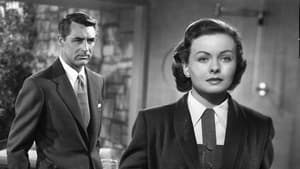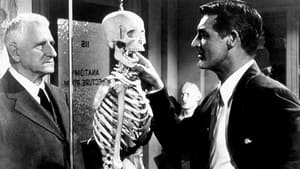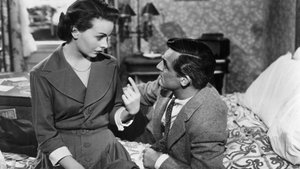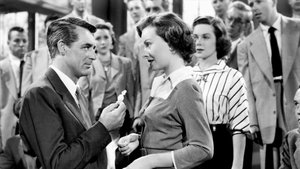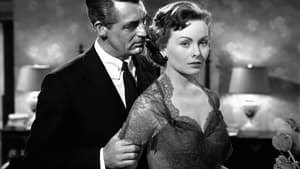Video Sources 0 Views
- Watch trailer
- People Will Talk 1951 Colorized

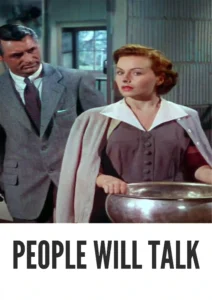
Synopsis
Table of Contents
Toggle
Dive into the delightful world of People Will Talk, a heartwarming romantic comedy from 1951, now brilliantly colorized to enhance its timeless charm. Starring Cary Grant and Jeanne Crain, this film, directed by Joseph L. Mankiewicz, offers a refreshing take on love, acceptance, and societal expectations. Perfect for those who appreciate classic cinema with a touch of wit and sophistication, this HD download provides a visually stunning way to experience this beloved film. This movie was also released under the titles Abra Cadaver and The Professor and the Co-Ed.
People Will Talk centers around the charismatic and unconventional Professor Dr. Noah Praetorius (Cary Grant), a brilliant physician and teacher known for his unorthodox methods. His life takes an unexpected turn when he encounters Deborah Higgins (Jeanne Crain), a pregnant student facing social stigma and personal hardship.
As Noah helps Deborah navigate her challenges, a close bond develops between them, leading to unexpected romantic feelings. Their relationship, however, faces scrutiny and opposition from conservative colleagues and suspicious members of the community, particularly Professor Elwell (Hume Cronyn), who is determined to expose what he perceives as impropriety. The film explores themes of prejudice, reputation, and the courage to defy societal norms. Through its witty dialogue and engaging characters, People Will Talk delivers a thought-provoking and entertaining story about the power of acceptance and the beauty of unconventional love.
The film showcases stellar performances from its talented cast:
-
Cary Grant as Professor Dr. Noah Praetorius
-
Jeanne Crain as Deborah Higgins
-
Finlay Currie as Shunderson
-
Walter Slezak as Professor Johannes Von Hartmann
-
Hume Cronyn as Professor Elwell
People Will Talk expertly blends elements of romantic comedy, social commentary, and gentle drama. Its sophisticated humor and insightful exploration of human relationships make it a standout film within the classic Hollywood era.
Released in 1951, People Will Talk reflects the changing social values of the post-war era. The film challenges conventional attitudes towards unmarried pregnancy and academic freedom, offering a progressive perspective on love and acceptance. Joseph L. Mankiewicz’s direction infuses the story with intelligence and sensitivity, making it a relevant and enduring piece of cinematic history. While addressing serious themes, the film maintains a lighthearted tone, making it accessible and enjoyable for a wide audience.
This colorized version of People Will Talk has been meticulously restored, enhancing the visual experience while preserving the film’s original charm and wit. The colorization process involved careful attention to detail, ensuring that the colors enhance the mood and atmosphere of each scene. Advanced digital techniques were employed to bring vibrancy and depth to the characters and settings, making the story even more captivating for modern viewers. While debates about colorizing classic films continue, this version offers a fresh perspective on a beloved film, inviting new audiences to discover its timeless appeal.
-
: Joseph L. Mankiewicz
-
: Joseph L. Mankiewicz
-
: the play “Dr. med. Hiob Prätorius” by Curt Goetz
-
: Milton R. Krasner
-
: Dorothy Spencer
-
: 20th Century Fox
-
: 20th Century Fox
-
: 111 minutes
-
: MP4
-
: HD (1080p)
-
: Compatible with most devices, including smartphones, tablets, computers, and smart TVs.
People Will Talk received positive reviews upon its release, with critics praising its witty dialogue, strong performances, and thought-provoking themes. The film’s exploration of social issues and its charming romantic storyline have made it a lasting favorite among classic film enthusiasts.
-
: What is People Will Talk about?
-
A: People Will Talk is a romantic comedy about a professor who forms an unconventional relationship with a pregnant student.
-
-
: Is People Will Talk (1951) a well-known film?
-
A: While not as widely known as some of Cary Grant’s other films, People Will Talk is a beloved classic known for its wit and charm.
-
-
: Is this version of People Will Talk colorized?
-
A: Yes, this version has been professionally colorized to enhance the viewing experience.
-
-
: What makes People Will Talk interesting for classic film fans?
-
A: People Will Talk offers a unique blend of romance, comedy, and social commentary, with stellar performances from Cary Grant and Jeanne Crain.
-
-
: What is the download format?
-
A: The download format is MP4, which is compatible with most devices.
-
-
: What resolution is the download?
-
A: The resolution is HD (1080p), providing a high-quality viewing experience.
-
Watch People Will Talk Today!

